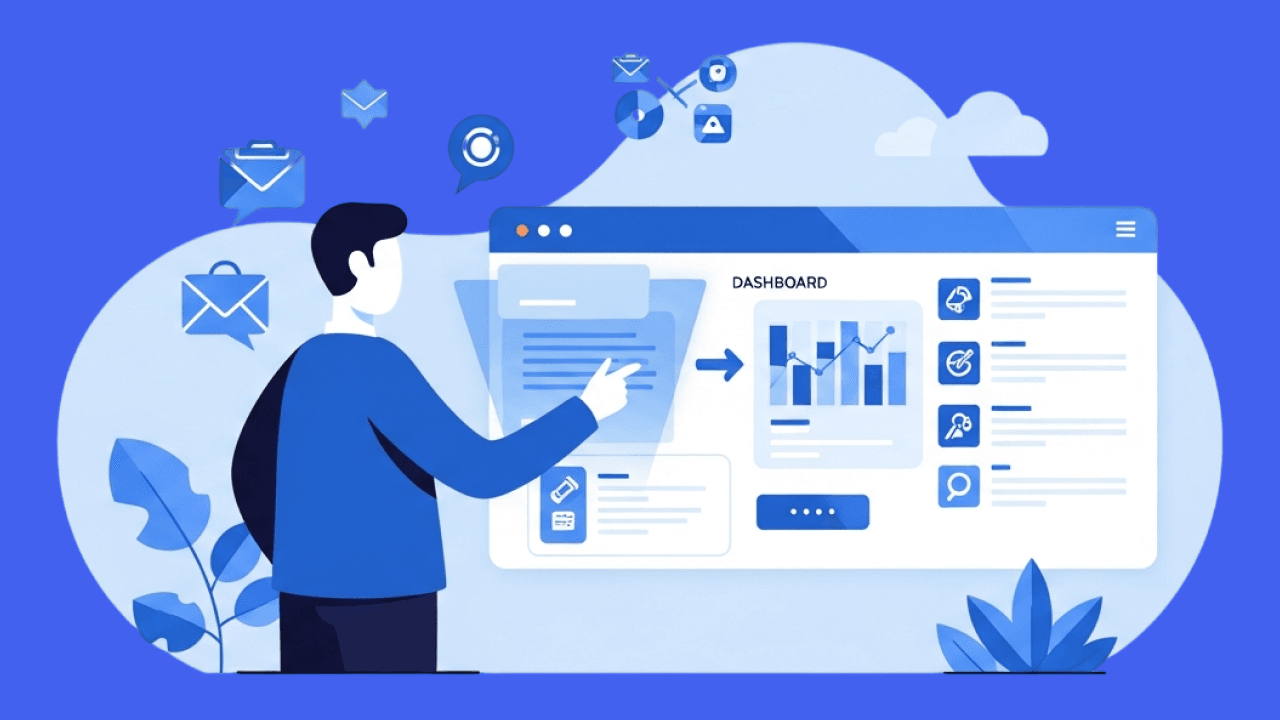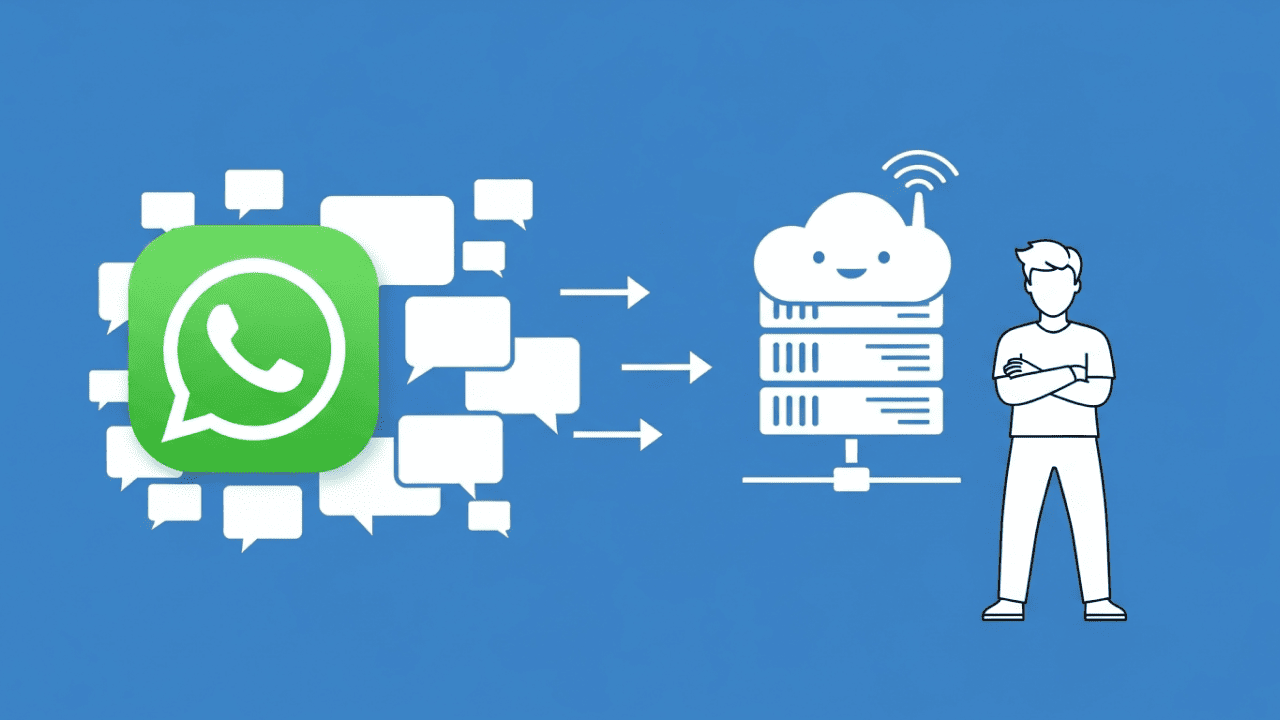Helpdesk software has become indispensable in e-commerce. It forms the control center for professional, scalable, and GDPR-compliant customer communication – digitized, automated, and always available. Companies, brands, and agencies are increasingly relying on intelligent helpdesk systems to orchestrate support processes end-to-end: from multichannel communication and ticket management to the integration of AI agents and self-service portals. Service desk processes from IT service management can also be centrally controlled in this way.
Find out how innovative helpdesk solutions like ArminCX, Zendesk, Freshdesk, Gorgias, and others are redefining the future of customer service – with a focus on automation, e-commerce integrations, data protection, and true scalability.
What is helpdesk software – and where does its value lie for e-commerce?
Helpdesk software is a comprehensive customer support platform that goes far beyond mere desk ticketing: it brings together classic ticket management with automated routing, AI-based response suggestions, knowledge base, multichannel communication, and self-service functions in one place. In IT-driven teams, it also covers service desk and IT support requirements from ITSM as customer service software.
Advantages of modern helpdesk systems at a glance
1. Omnichannel communication & integrations
All communication channels – E-Mail, WhatsApp, Chat, Social Media, and Telephone – come together centrally on one platform. Deep integrations with shop systems such as Shopify, WooCommerce, or Magento and CRM platforms such as HubSpot or Salesforce enable a unified customer view. This creates a consistent customer experience with direct access to orders, returns, and inquiries.
2. Increasing efficiency through automation & routing
Modern helpdesk software saves time through automated ticket assignment and prioritization. AI routing distributes inquiries intelligently by language, category, or customer value. The result: faster processing, less manual work, no lost tickets, and noticeable relief for support staff.
3. Self-service portals & knowledge base
Customers resolve up to 40% of their concerns themselves – for example regarding orders, returns, or FAQs. An integrated self-service portal with intuitive search, how-to guides, and status queries significantly relieves your support team.
4. AI agents & scalable automation
AI recognizes patterns, suggests responses, and automatically processes routine inquiries. This enables efficient 24/7 support and high ticket volumes – without additional staff.
5. Reporting & data-driven insights
Live dashboards and KPI analyses show response times, resolution duration, and customer satisfaction in real time. This makes bottlenecks and optimization potential visible – the basis for targeted coaching and process improvement.
6. Data security, GDPR & EU hosting
Encrypted data transmission, granular rights management, and hosting within the EU ensure compliance and trust. Every support action remains traceable via audit logs – a must for DACH companies.
7. Mobile access & flexible scaling
Help desk software enables mobile access, decentralized teamwork, and fast onboarding of new agents. This makes support teams flexible, scalable, and ready for action around the clock – ideal for seasonal peaks.
The best helpdesk software 2025 – providers compared
Which helpdesk system fits your company? Below is a comprehensive overview of current top solutions in 2025 – with a focus on integrations, AI competence, omnichannel support, compliance, and special e-commerce features:
| Provider | Short description | Integrations | Special features |
|---|---|---|---|
| ArminCX | AI-first, e-commerce-first helpdesk for DACH brands | Shopify, WooCommerce, WhatsApp, Klaviyo, Zapier | Native Shopify integration, GDPR hosting, automations, AI copilot |
| Zendesk | Market leader with comprehensive CX suite | Omnichannel incl. WhatsApp, CRM | AI agents, copilot, scalable enterprise solution |
| Intercom (Fin) | Conversational helpdesk with AI agent | Chat, WhatsApp, email | Fin AI agent, pay-per-resolution model |
| Freshdesk (Freddy AI) | Intuitive helpdesk platform with AI module | Email, chat, social | Automations, bot builder, reporting |
| Gorgias | Shopify-first helpdesk specifically for e-commerce | Shopify, WhatsApp, social, email | Strong shop integration, automatic responses |
| HubSpot Service Hub | CRM-based helpdesk module | CRM, Marketing Hub, chat | Unified inbox, knowledge base, AI features |
| Zoho Desk (Zia AI) | Cloud-based helpdesk system | Email, chat, CRM | Zia AI assistant, automatic classification |
| Tidio (Lyro) | Chat & helpdesk tool for SMBs | Shopify, WooCommerce, social | Lyro AI bot, upselling automations |
| LiveAgent | Classic multi-channel helpdesk | Chat, email, social | Extensive automations & SLA tools |
| Front | Collaborative team inbox with helpdesk functions | Email, CRM, social | Focus on team collaboration & transparency |
| Kayako | All-in-one helpdesk & live chat platform | Email, social, chat | Self-service portals, SMB focus |
Helpdesk software providers at a glance
ArminCX
Category: AI-first, e-commerce-first helpdesk for DACH brands Integrations: Shopify, WooCommerce, WhatsApp, Klaviyo, Zapier USP / benefits: Native Shopify integration, GDPR hosting, automations, AI copilot
ArminCX is the AI-based omnichannel platform for e-commerce brands in the DACH region. It combines WhatsApp, social media, telephone, and email in one system, offers full GDPR compliance, and uses AI for ticket automation, responses, and personalization.
Zendesk
Category: Market leader with comprehensive CX suite Integrations: Omnichannel incl. WhatsApp, CRM USP / benefits: AI agents, copilot, scalable enterprise solution
Zendesk offers a powerful complete solution for customer support. Through omnichannel communication, intelligent automations, and integrated AI agents, it is ideal especially for large teams with high ticket volumes.
Intercom (Fin)
Category: Conversational helpdesk with AI agent Integrations: Chat, WhatsApp, email USP / benefits: Fin AI agent, pay-per-resolution model
Intercom combines live chat, messaging, and automation with the “Fin” AI agent. The system offers a modern, conversation-based approach to support and customer engagement – particularly interesting for SaaS and tech companies.
Freshdesk (Freddy AI)
Category: Intuitive helpdesk platform with AI module Integrations: Email, chat, social USP / benefits: Automations, bot builder, reporting
Freshdesk impresses with simple setup, high flexibility, and the “Freddy” AI module. It offers chatbots, self-service portals, and detailed reports – a solid solution for SMBs up to enterprise.
Gorgias
Category: Shopify-first helpdesk specifically for e-commerce Integrations: Shopify, WhatsApp, social, email USP / benefits: Strong shop integration, automatic responses
Gorgias is the support solution specifically for online stores. It integrates deeply with Shopify, automates frequent inquiries, and uses customer data directly from the shop – ideal for brands focusing on customer experience and scaling.
HubSpot Service Hub
Category: CRM-based helpdesk module Integrations: CRM, Marketing Hub, chat USP / benefits: Unified inbox, knowledge base, AI features
HubSpot Service Hub connects support, marketing, and sales on a single platform. The CRM integration provides context-based information, while AI and automation process customer inquiries faster and more efficiently.
Zoho Desk (Zia AI)
Category: Cloud-based helpdesk system Integrations: Email, chat, CRM USP / benefits: Zia AI assistant, automatic classification
Zoho Desk targets budget-conscious teams that need a solid ticket and communication system. With the “Zia” AI, inquiries are analyzed, prioritized, and automatically assigned – ideal for SMBs and startups.
Tidio (Lyro)
Category: Chat & helpdesk tool for SMBs Integrations: Shopify, WooCommerce, social USP / benefits: Lyro AI bot, upselling automations
Tidio combines live chat and the “Lyro” AI bot with automated workflows for small and medium-sized companies. E-commerce shops in particular benefit from integrated upselling functions and multichannel communication.
LiveAgent
Category: Classic multi-channel helpdesk Integrations: Chat, email, social USP / benefits: Extensive automations & SLA tools
LiveAgent is a proven system with a broad range of functions and strong automation. With SLA management, ticket histories, and multichannel communication, it is ideal for companies with structured customer support.
Front
Category: Collaborative team inbox with helpdesk functions Integrations: Email, CRM, social USP / benefits: Focus on team collaboration & transparency
Front optimizes collaboration in support teams through shared inboxes, clear responsibilities, and CRM integration. The solution combines email management with helpdesk elements for more efficiency and transparency.
Kayako
Category: All-in-one helpdesk & live chat platform Integrations: Email, social, chat USP / benefits: Self-service portals, SMB focus
Kayako is a compact platform for small to medium-sized businesses that want to combine customer service, chat, and knowledge base. With an intuitive interface and self-service functions, it is a solid all-round solution.
ArminCX stands out: as an AI-first, e-commerce-optimized helpdesk solution, it combines deep native integrations (Shopify, WooCommerce, Magento), full multichannel support, GDPR-compliant EU hosting, and maximum automated self-service workflows – without hidden costs and with maximum data sovereignty. Brands that want consistent customer experience and data protection will prefer ArminCX in 2025.
How do you choose the right helpdesk solution?
Not every help desk solution fits every company. The selection should be based on your processes, channels, and growth goals. Especially in e-commerce, the right platform determines efficiency, customer satisfaction, and data control.
1. Integrations & e-commerce compatibility
Choose a system that integrates seamlessly into your existing tools – such as Shopify, WooCommerce, Klaviyo, or Zapier. Native integrations enable automated workflows like order status queries or return updates without you having to intervene manually.
2. Automation & AI features
Modern helpdesk software uses AI for ticket routing, prioritization, text suggestions, and self-service functions. AI agents and copilot systems support your team, detect patterns in inquiry behavior, and significantly optimize response times.
3. Data protection & EU hosting
For DACH brands, data protection is not a nice-to-have but a duty. Pay attention to GDPR-compliant hosting within the EU, encrypted data transmission, and fine-grained access rights. Only then will you remain legally secure in the long term.
4. Pricing model & scalability
Transparent pricing is crucial. Check whether the provider charges by seats, modules, or volume. Systems with flat rates or flexible models are often cheaper in the long term – especially for growing teams.
5. Measurability & reporting
Choose a platform that shows you all relevant KPIs – from CSAT, first response time, and deflection rate to team performance and degree of automation. Only those who understand their support data can improve sustainably.
Conclusion:ü´+#The best helpdesk system is the one that adapts to your processes – not the other way around. A clear focus on e-commerce integrations, AI, and data protection creates the foundation for efficient, scalable customer service.
Typical e-commerce use cases for helpdesk systems
WISMO (“Where Is My Order?”)
Up to 60% of all inquiries concern shipping status (“WISMO”).
Automated tickets and self-service portals deliver up-to-the-second status data from the shop system in seconds – customers can check status independently without support effort.
Returns management
Via the customer portal, customers register their returns, generate labels, and track the process live.
Workflow automation assigns tickets to the right support staff, relieves the team, and provides full transparency.
Upselling & offer management in support
Requests for help such as “downgrade” or “cancellation” are linked by AI agents with CRM data and automatic offers.
The system suggests relevant upsells during ticket processing and documents all interactions for targeted quality management.
Self-service, knowledge base & automation: How helpdesk software reduces ticket volume
Self-service functions are indispensable today: a large part of customer requests can be resolved directly via a well-maintained knowledge base, how-to guides, or automated FAQs – without contacting the support team. This relieves the team, increases response speed, and ensures measurable customer satisfaction. Essential elements:
Self-service portal with intuitive access to the online knowledge base
Community forum for peer-to-peer support
Context-sensitive help and AI response suggestions directly in the chat or ticket system
The most important requirements: seamless integration, intuitive use, and constant updating of content. The more concerns customers can resolve themselves, the lower the ticket volume – and the more resources are available to the support team for complex cases.
Modern helpdesk features 2025
Helpdesk software today is far more than a digital ticket system. The best solutions combine AI support, self-service, automation, and omnichannel communication into a central customer experience platform.
AI agents & copilot support
AI agents take over routine tasks such as status inquiries, password resets, or simple complaints. Copilot functions automatically provide response suggestions, prioritize tickets, and learn from historical data – keeping your team focused on the important cases.
Self-service & knowledge base
Customers today expect direct answers – without waiting times. Modern helpdesk systems offer intuitive self-service portals, FAQ modules, and dynamic knowledge bases where users can find solutions themselves. This reduces ticket volume and increases satisfaction.
Automatic tagging & routing
AI-based tagging automatically detects concerns, language, and urgency. The system distributes tickets to the appropriate agents or channels, prioritizes VIP customers, and ensures that no inquiry is lost.
Reporting & performance dashboards
Real-time dashboards provide an overview of response times, ticket load, and agent performance. Predictive analytics highlights trends early – from peaks in inquiry volume to topics that should be automated.
Multichannel communication & WhatsApp integration
Whether email, chat, social media, or WhatsApp Business API – all channels come together centrally. This makes customer communication consistent, traceable, and faster. Especially in e-commerce, WhatsApp is the key channel for order questions, shipping updates, and personal support.
Data security & access management
In addition to efficiency, security counts: granular rights management, audit logs, and role-based approvals ensure full control over data and processes – centrally documented and GDPR-compliant.
FAQ: Helpdesk software – common questions from decision-makers
What is helpdesk software?
Helpdesk software bundles all customer inquiries from email, chat, WhatsApp, and social media in one place. It automates ticket management, routing, and responses – for faster, scalable support.
Which helpdesk software is the best in 2025?
Top solutions include ArminCX, Zendesk, Freshdesk, and Gorgias. ArminCX impresses as an AI-first helpdesk with Shopify integration, automation, and GDPR-compliant EU hosting.
How does a helpdesk work in e-commerce?
The system collects all support inquiries, links them with shop data (e.g., orders, returns), and automates responses or forwarding – making customer service efficient and centralized.
Which tools offer AI support?
ArminCX, Zendesk (Copilot), Intercom (Fin), and Freshdesk (Freddy AI) use AI to suggest responses, prioritize tickets, and automatically resolve routine tasks.
How do you remain GDPR-compliant?
Rely on providers with EU hosting, encryption, and clear rights management. Tools like ArminCX ensure data protection according to GDPR standards – without data transfer outside the EU.
Conclusion: Why ArminCX & modern helpdesk software are indispensable for e-commerce
Helpdesk software in 2025 means:
Highly automated, AI-based customer service processes
Deep e-commerce integrations (Shopify, WooCommerce, Magento, and more)
Absolute data security & GDPR compliance with full EU hosting
Maximum scalability, mobile deployment scenarios, and real-time insights
Self-service and knowledge base features that sustainably reduce ticket volume
ArminCX is emblematic of the next generation of powerful, e-commerce-oriented helpdesk systems – maximally automated, 100% data protection-compliant, and designed specifically for the requirements of modern shops.
Ready for the next step? Test ArminCX now – the AI-first, e-commerce-first helpdesk solution for DACH brands with native Shopify integration and GDPR hosting.








